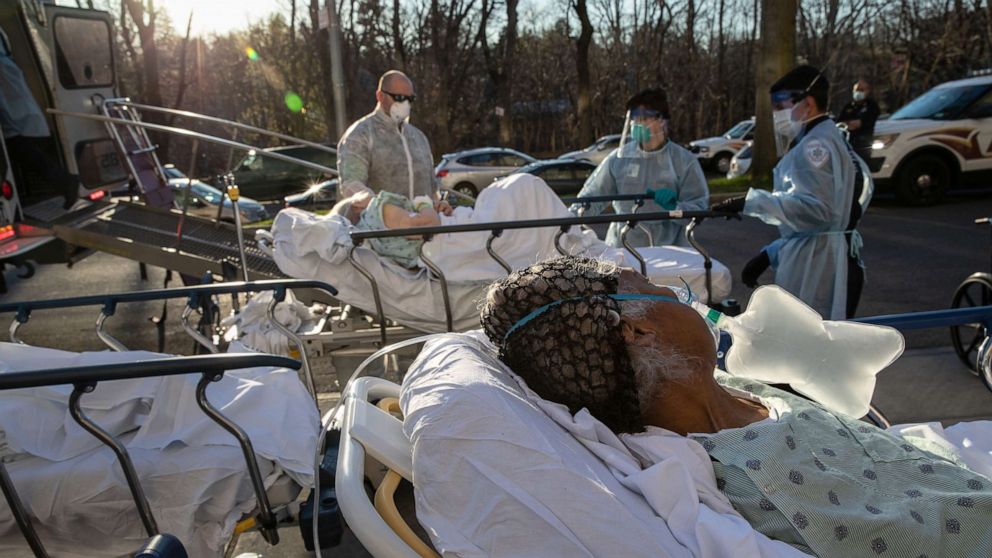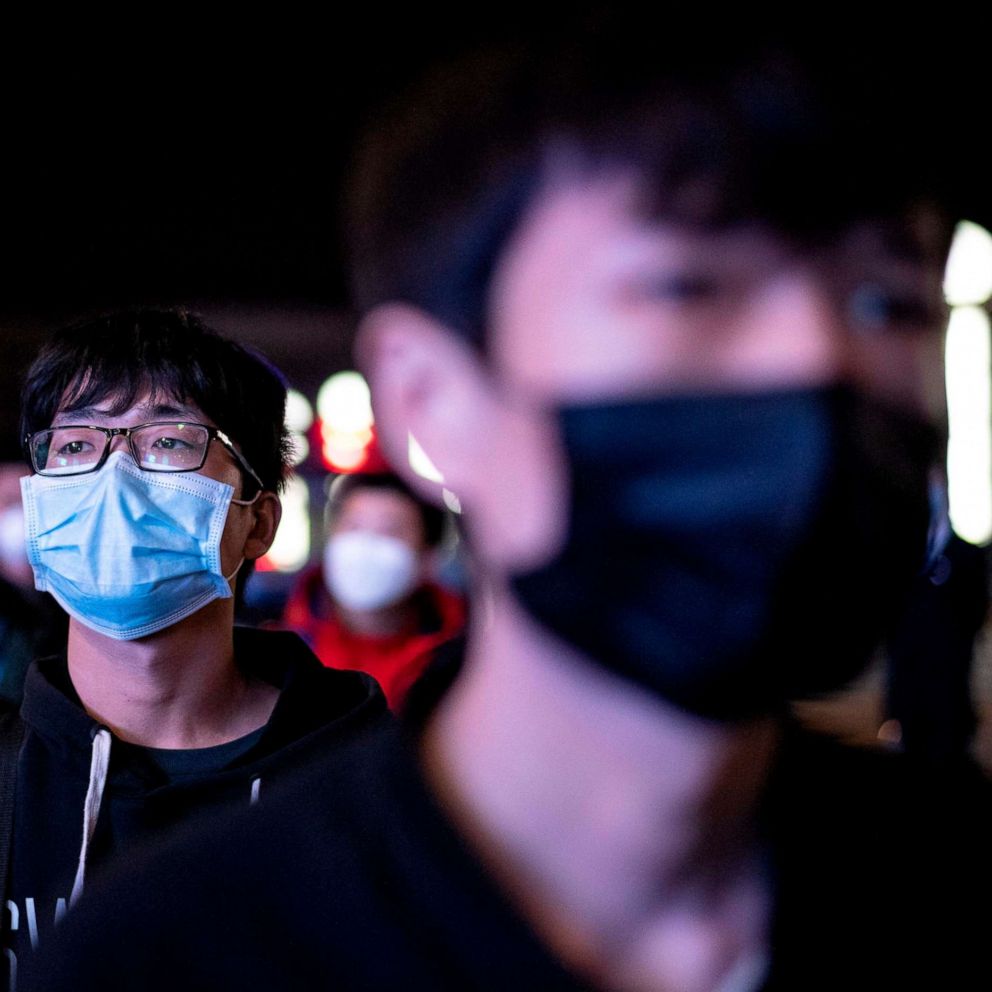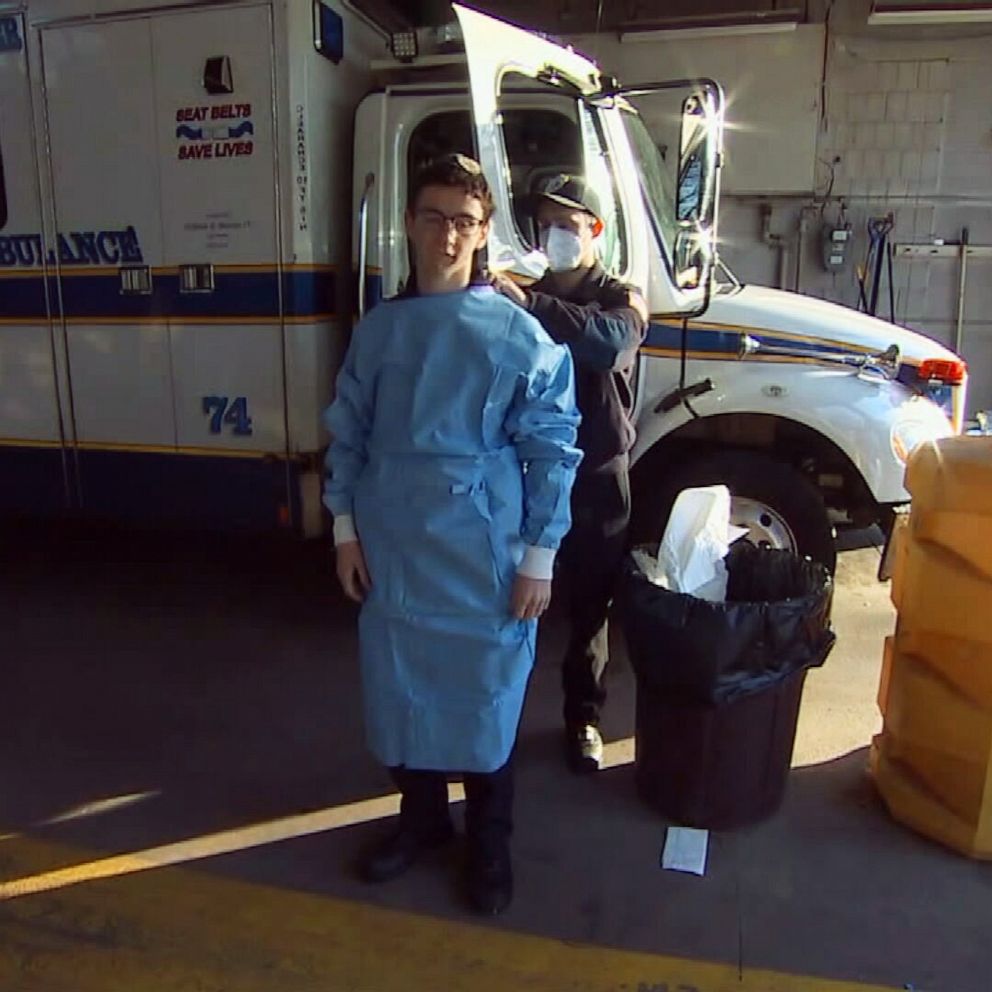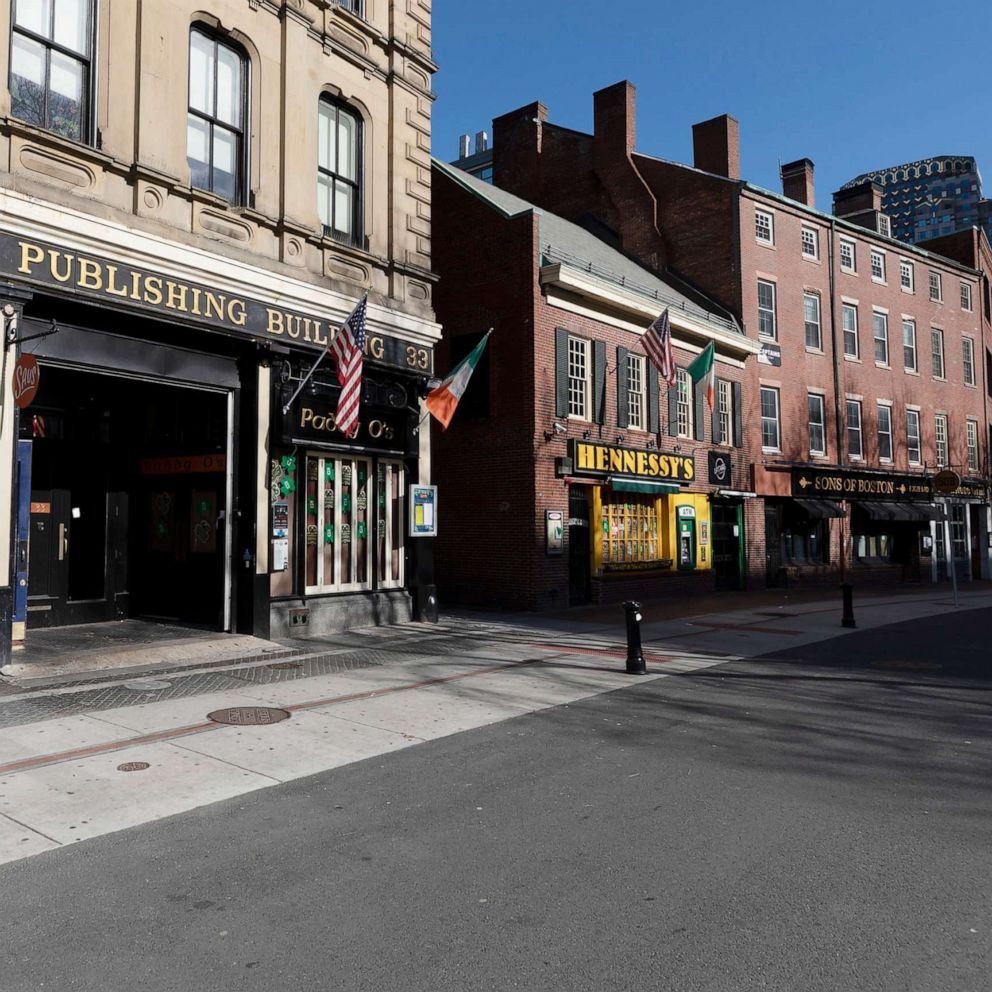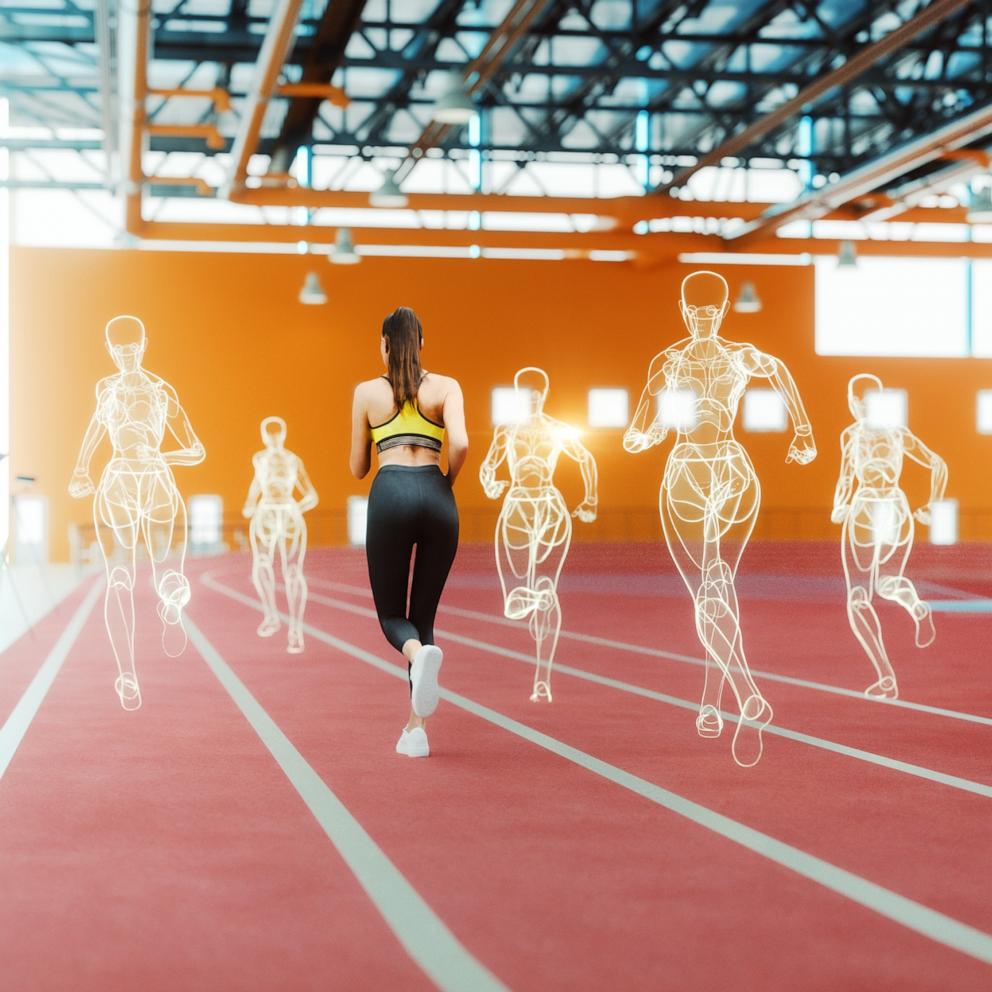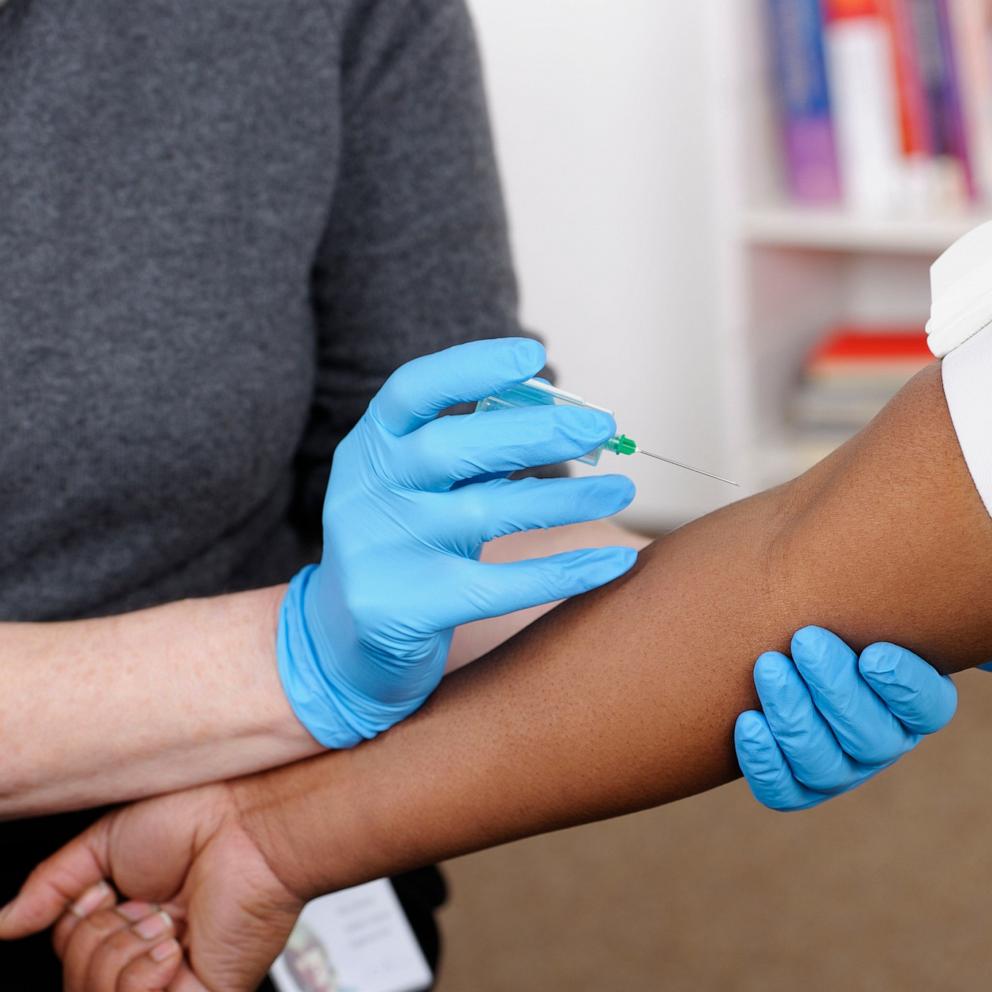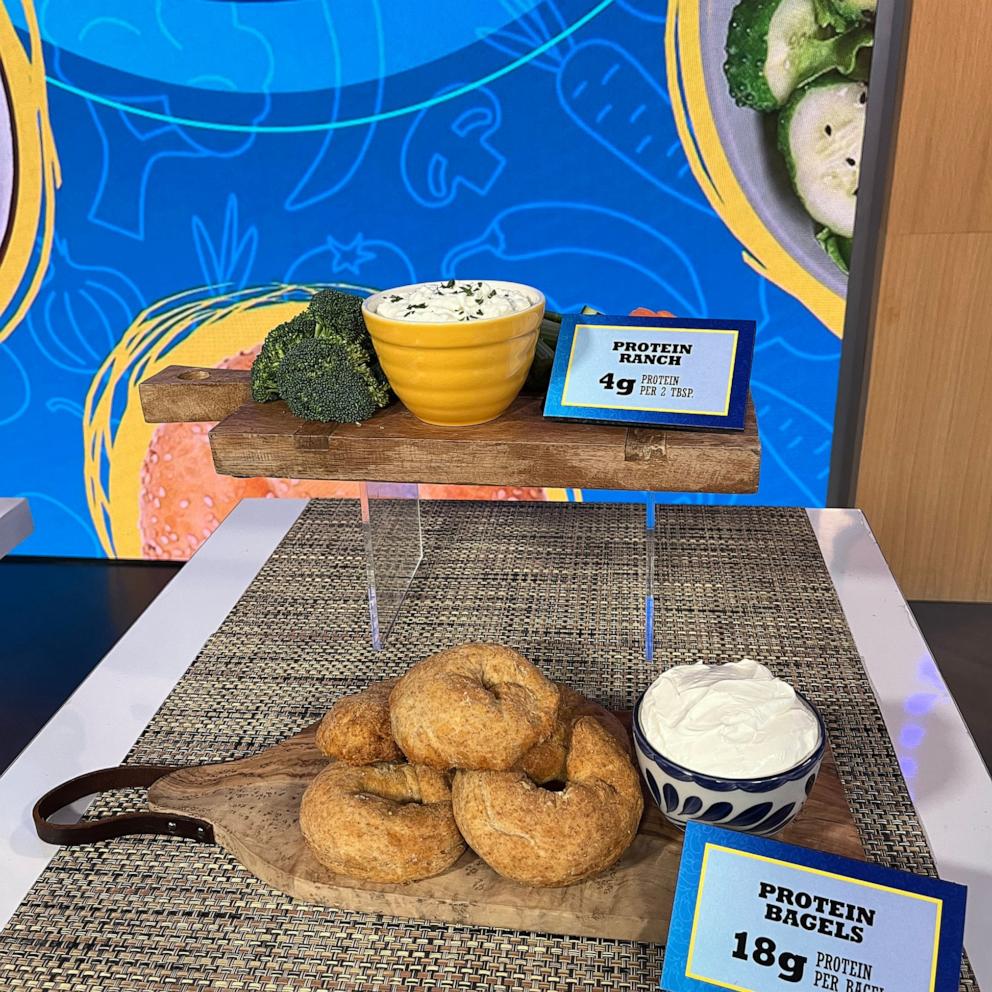New York curve flattens despite highest daily COVID-19 death toll, Cuomo says
A global pandemic of the novel coronavirus has now killed at least 14,739 people in the United States.
The U.S. is among the worst affected countries, with over 430,000 people diagnosed with COVID-19, the disease caused by the new respiratory virus, according to data compiled by the Center for Systems Science and Engineering at Johns Hopkins University.
Worldwide, more than 1.48 million people have been diagnosed with COVID-19 and over 88,000 of them have died since the virus emerged in China in December. The actual numbers are believed to be much higher due to testing shortages, many unreported cases and suspicions that some governments are hiding the scope of their nations' outbreaks.
Italy has, by far, the world's highest death toll -- over 17,600.
Wednesday's biggest developments:
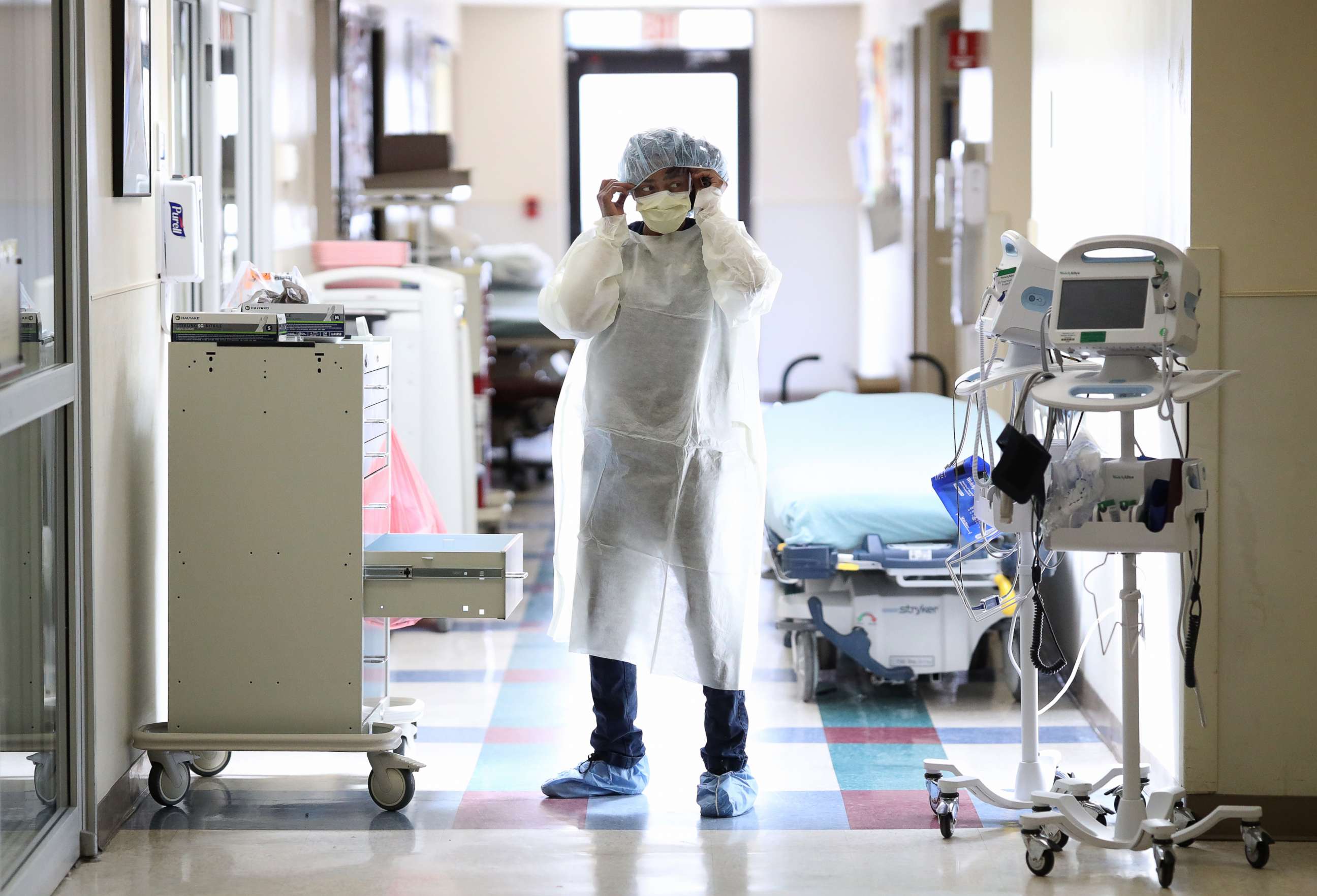
Here's how the news developed. All times Eastern.
6:39 p.m.: 6 VA health care workers die from virus
Six health care workers who operated at VA facilities have been killed by the coronavirus, Department of Veterans Affairs press secretary Christina Noel announced.
The unidentified employees worked at Ann Arbor, Michigan; Detroit; Indianapolis; Houston; and Reno, Nevada VA Medical Centers. So far, 1,130 VA employees have contracted COVID-19, the agency said.
A VA facility in New Orleans has had 92 employees test positive, the highest concentration of infected workers, according to the VA.
5:17 p.m.: USDA expands online grocery shopping program for food stamp recipients
The U.S. Department of Agriculture announced that SNAP recipients in California and Arizona can now shop for groceries online.
The agency approved both states' requests to be added to the USDA's pilot program that was previously available in six states, including Washington and New York.
Participating online retailers include Amazon and Walmart.
Tune into ABC at 1 p.m. ET and ABC News Live at 4 p.m. ET every weekday for special coverage of the novel coronavirus with the full ABC News team, including the latest news, context and analysis.
4:30 p.m.: Detroit 'seeing the beginning of a glimmer of light'
In hard-hit Detroit, the curve is appearing to flatten, Mayor Mike Duggan said, noting that the daily coronavirus-related death count has been dropping and stabilizing over the past few days.
"We're seeing the beginning of a glimmer of light," Duggan said.
Detroit has 5,830 diagnosed cases of coronavirus, including 170 members of the Detroit Police Department.
At least 247 people in Detroit have died.
But Duggan said Wednesday that hospitals are starting to see an increase in discharges and a slower rate of admissions.
Duggan credited social distancing for the apparent flattening of the curve and urged residents to continue the practice.
Those riding city buses will now be given masks to wear as they get on, he added.
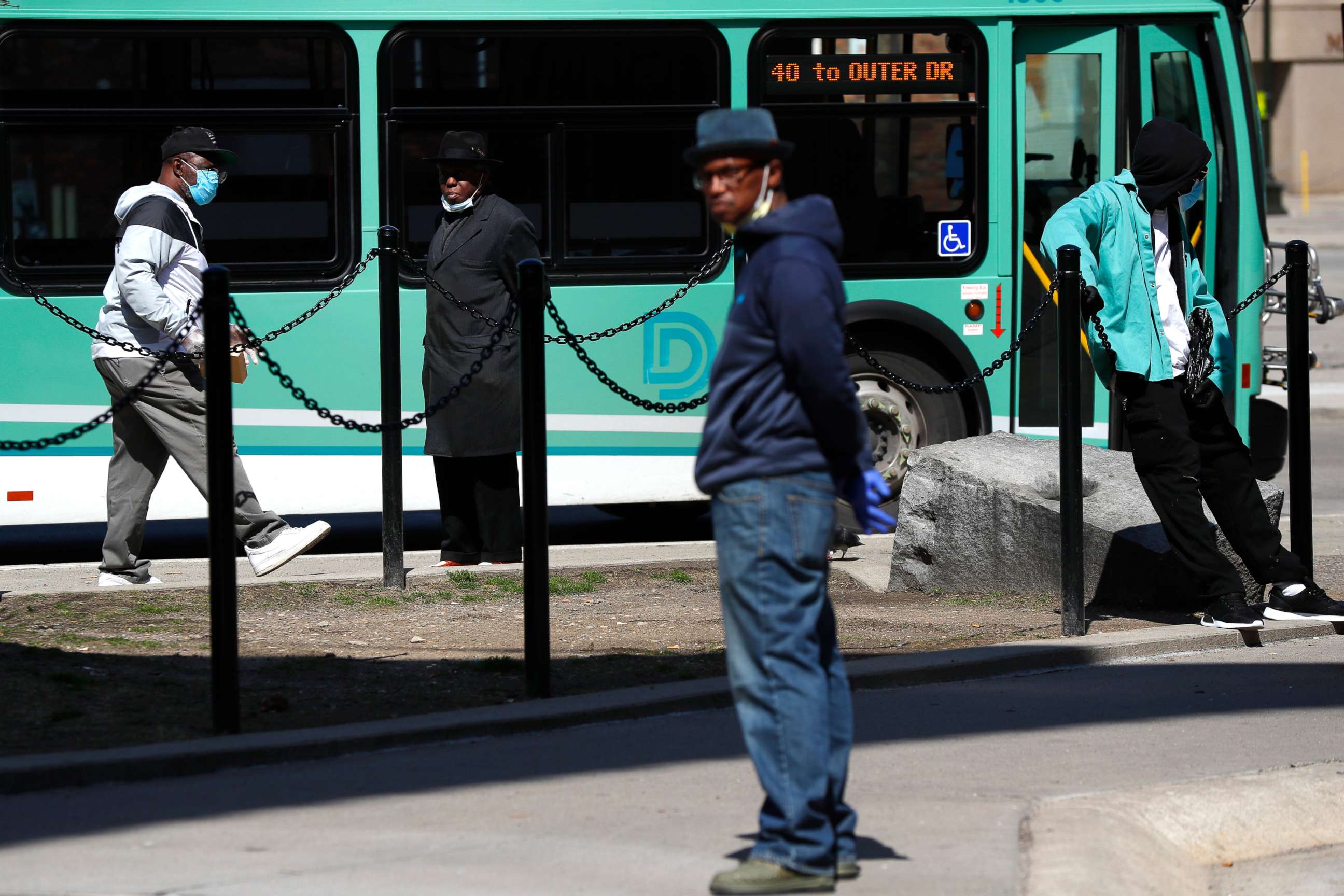
3:52 p.m.: Virginia primary pushed back, governor wants local elections moved to November
The Virginia presidential primary, scheduled for June 9, will be pushed back to June 23, Gov. Ralph Northam said Wednesday.
Over 3,600 people in the state have been diagnosed with the coronavirus and 75 people have died.
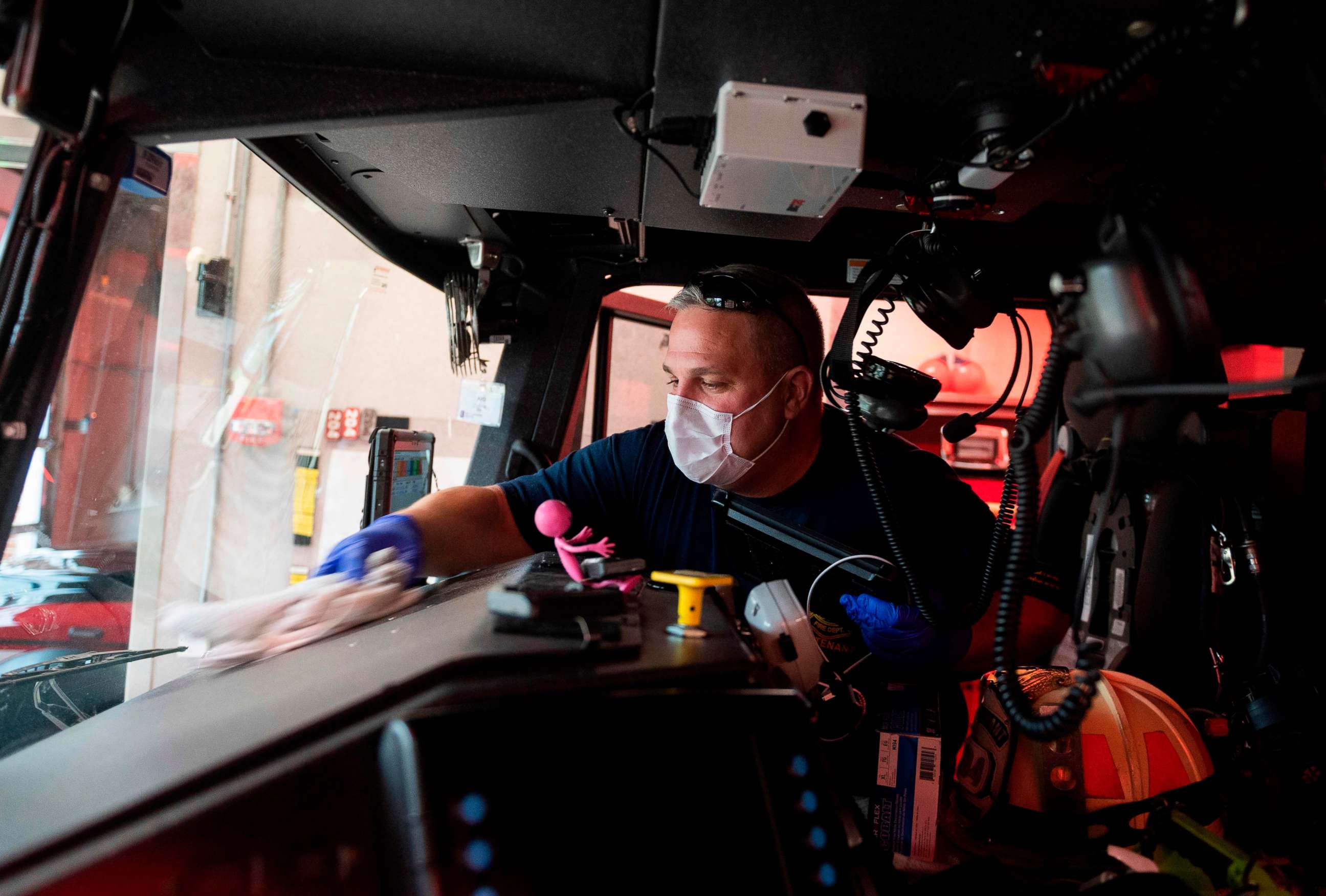
Northam also said he's recommending all local and in-state elections move from May to November -- though that must be approved by the state legislator when they return on April 22.
3:30 p.m.: Miami requiring masks to be worn in stores at all times
The City of Miami is requiring employees and customers to wear masks at all times in grocery stores, restaurants, pharmacies and convenience stores.
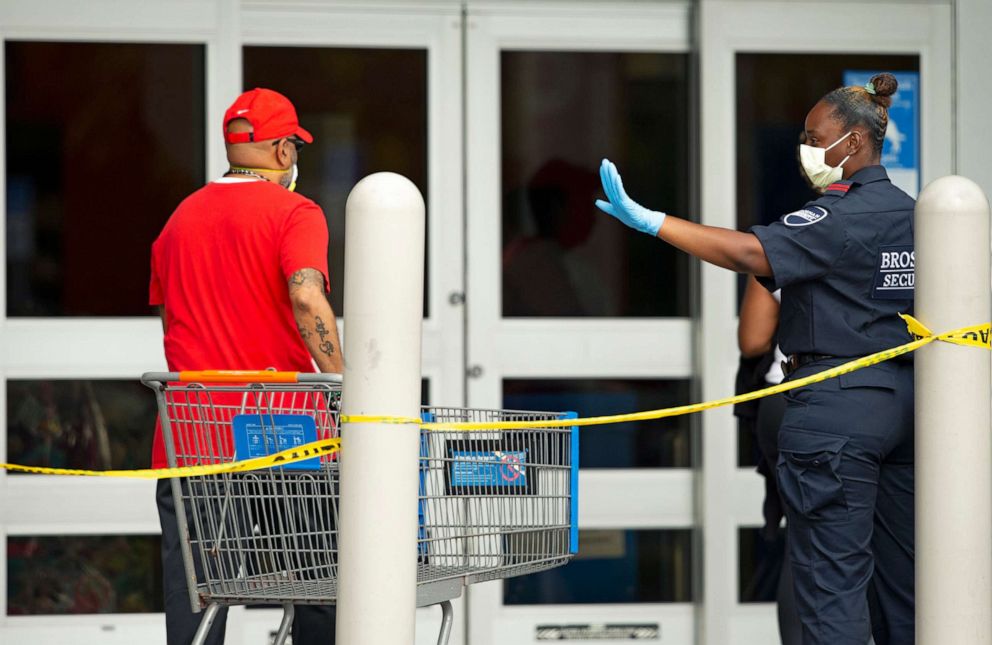
Homemade masks, such as scarves and bandannas, are permitted.
2:20 p.m.: New Jersey death toll over 1,500
In New Jersey, one of the hardest-hit states, 275 more people died from the coronavirus in the last 24 hours, bringing the state's death total to 1,504.
Over 47,000 in the state have been diagnosed.
"We're not at any plateau," Gov. Phil Murphy warned. "We need to continue to be absolutely vigilant."
"Don't let the warm weather or the holidays fool us," Murphy said. "If we open up too soon, I fear we are placing gasoline on the fire."
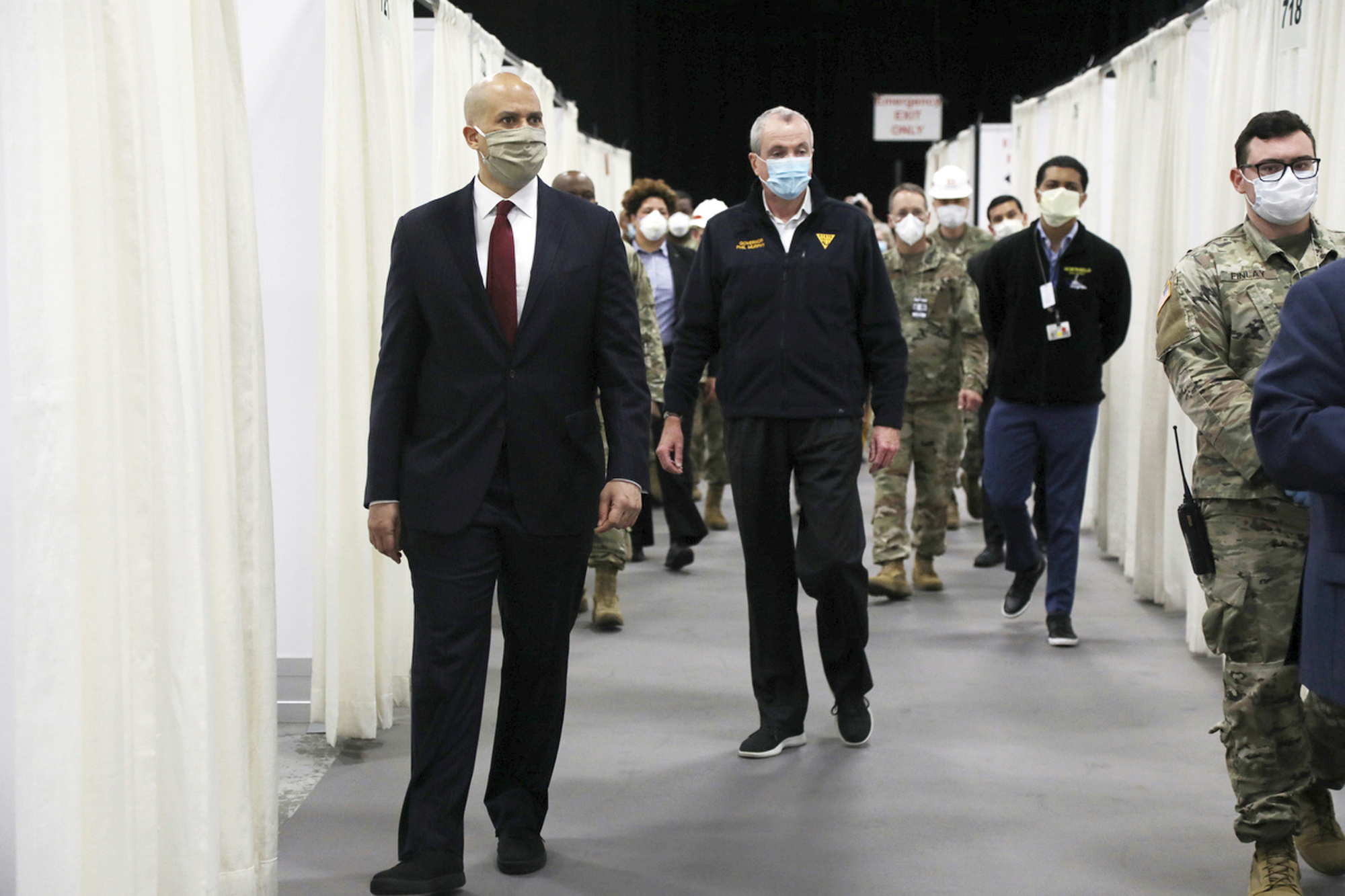
Murphy said he is signing an executive order moving the state's primary from June 2 to July 7.
He also is signing an executive order to stop nonessential construction across the state.
1 p.m.: Curve is flattening in hard-hit New York
In New York -- the state hit hardest by the pandemic -- the curve has flattened so far, Gov. Andrew Cuomo said Wednesday.
"What we have done and what we are doing is actually working," the governor said, but he warned, "if we stop what we are doing, you will see that curve change."
"I'm not willing to say -- because it's not true -- that any of this is over or anything has been accomplished. Because this is just a small snapshot in time where we are," Cuomo said.
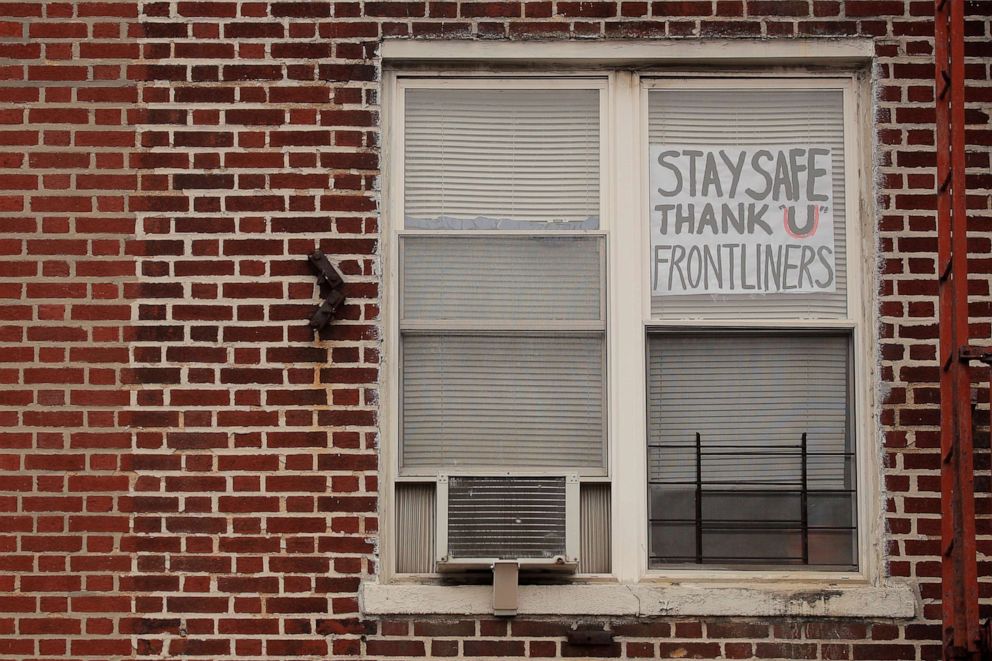
If the hospitalization rate keeps decreasing the way it is now, the hospital system should stabilize over the next few weeks, he said.
However, the death toll is going steadily up, and on Tuesday the state saw the highest single-day death toll yet, with 779 new fatalities, Cuomo said.
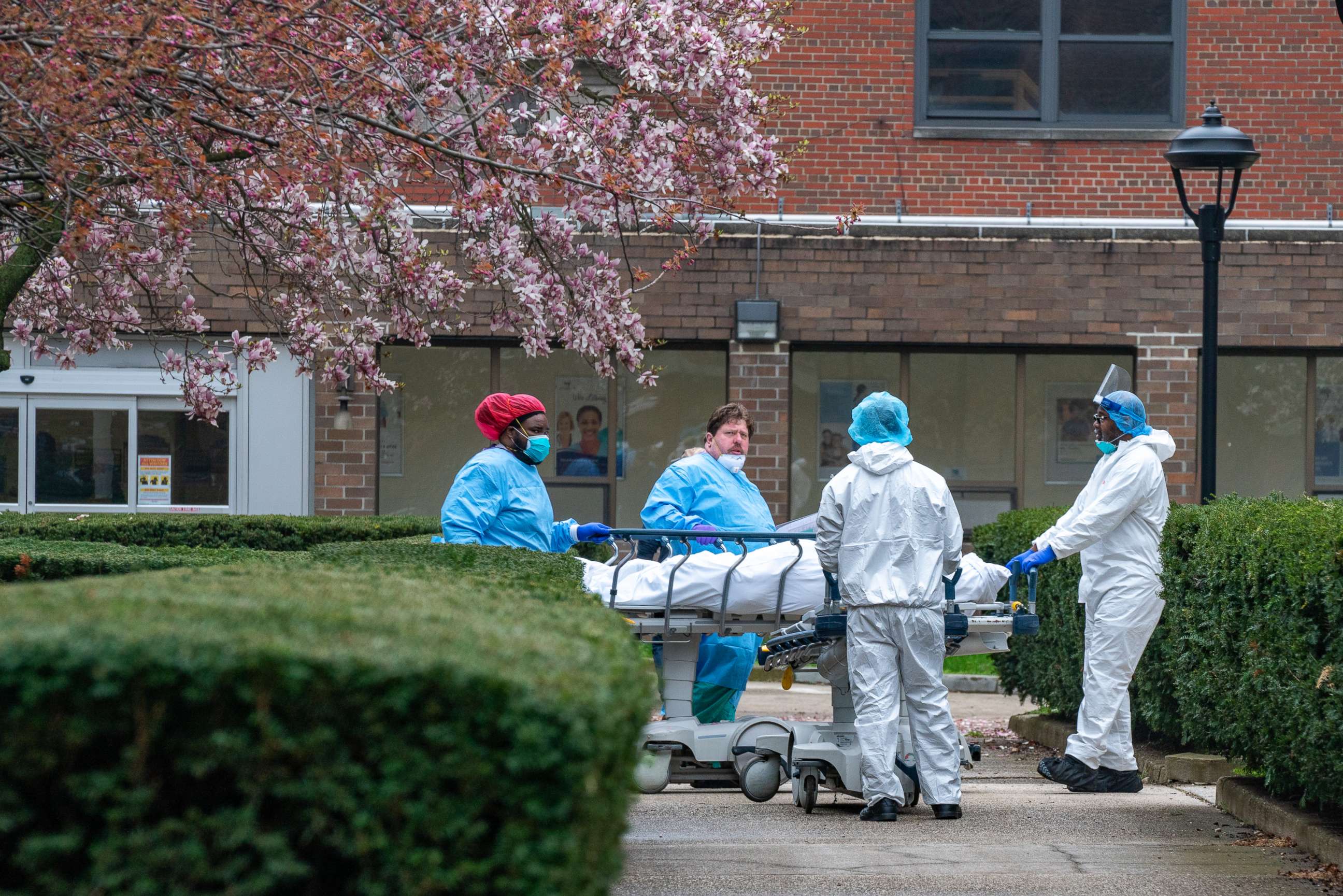
The number of deaths may continue to rise as those hospitalized for the longest periods pass away, he said.
While New York state lost 2,753 lives at the World Trade Center on Sept. 11, now the coronavirus has claimed the lives of over 6,000 people in the state, Cuomo said.
Cuomo said he is directing all flags to be flown at half-mast in honor of those lost.
Cuomo also said all New Yorkers can vote absentee for this primary in June.
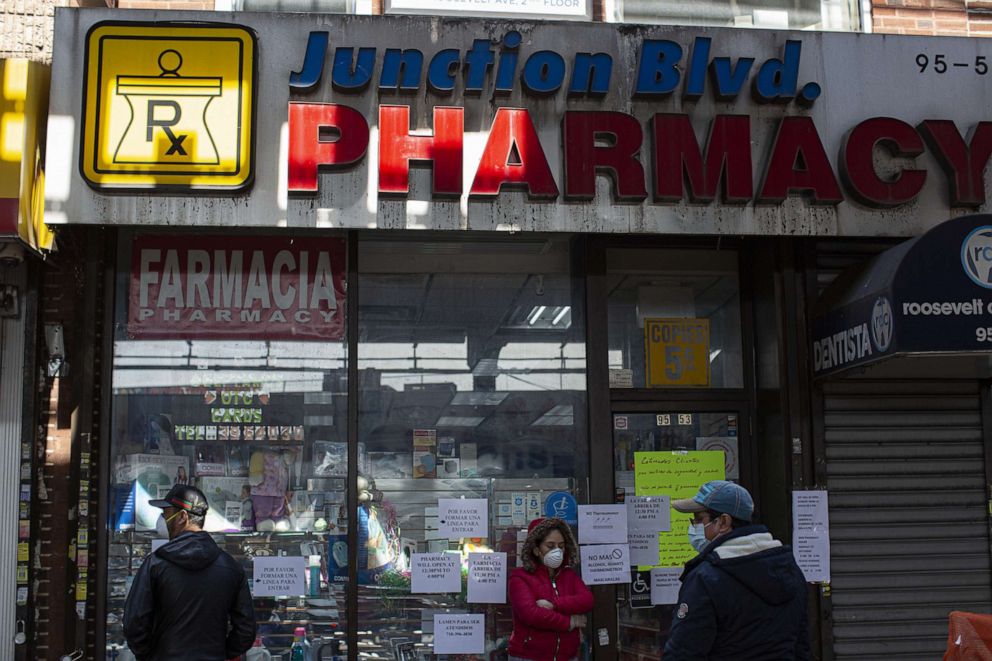
And as new preliminary data showed the largest percentage of coronavirus deaths in New York City was among Hispanics, the governor called for more testing in minority communities and more data research immediately.
"Why is it that the poorest people always pay the highest price?" Cuomo said. "Are more public workers Latino and African American? Who don't have a choice, frankly, but to go out there every day and drive the bus and drive the train and show up for work and wind up subjecting themselves to, in this case, the virus?
"Let's do the research," he said.
12:15 p.m.: U.K. prime minister remains in intensive care but condition is improving
U.K. Prime Minister Boris Johnson remains in intensive care at a London hospital with the coronavirus, but his condition is improving, said Rishi Sunak, chancellor of the exchequer.
Johnson, 55, is sitting up in bed and speaking with doctors, Sunak said Wednesday evening local time.
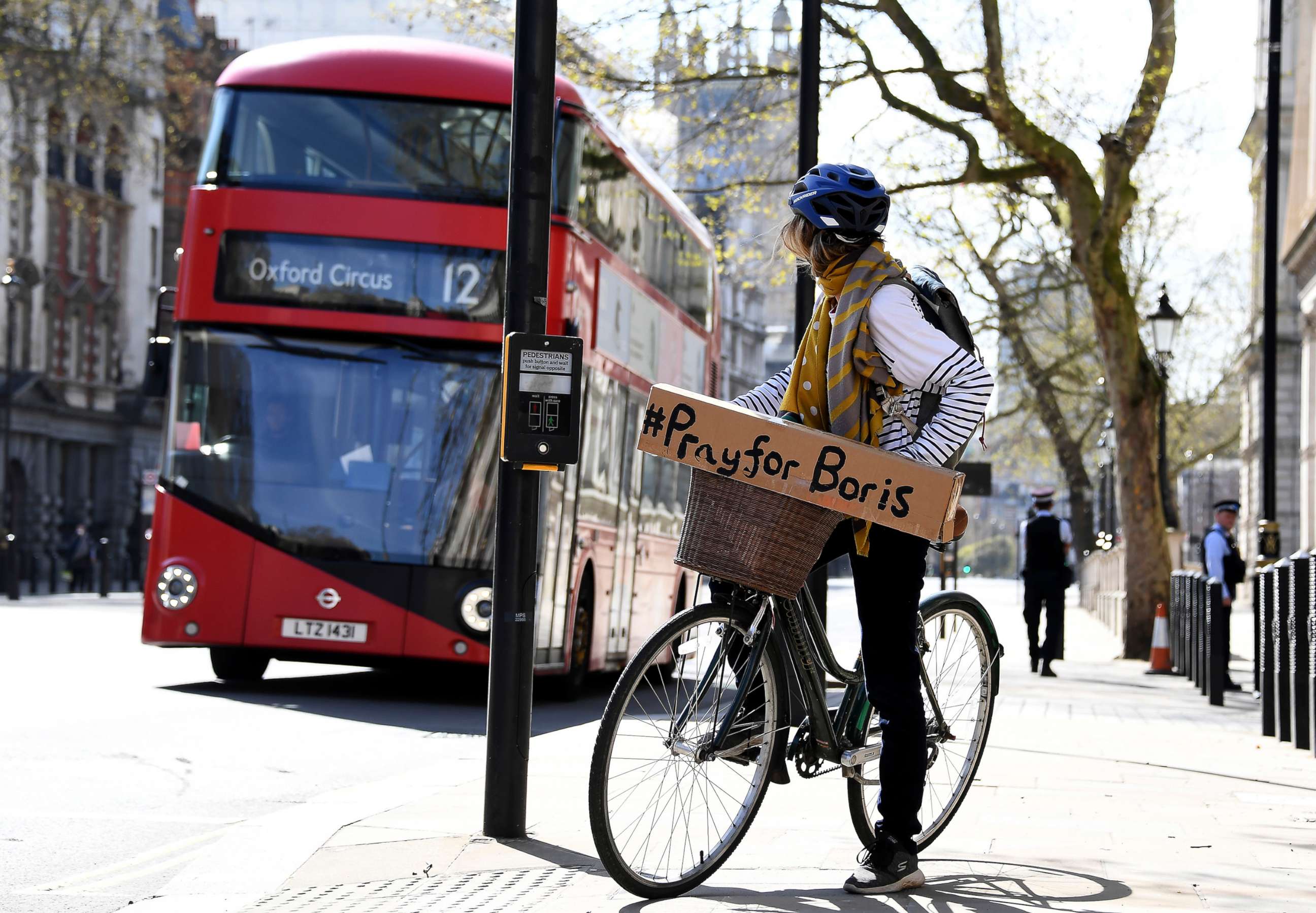
A spokesperson for the prime minister's office said earlier Wednesday that he was "clinically stable," was "responding to treatment" and was "in good spirits."
Johnson has been hospitalized since Sunday evening due to "persistent symptoms" of the novel coronavirus. He was transferred to the intensive care unit on Monday after his condition "worsened," according to a statement from his official residence and office, 10 Downing Street.
The prime minister has been receiving "standard" oxygen treatment in the ICU and has been breathing without any other assistance.
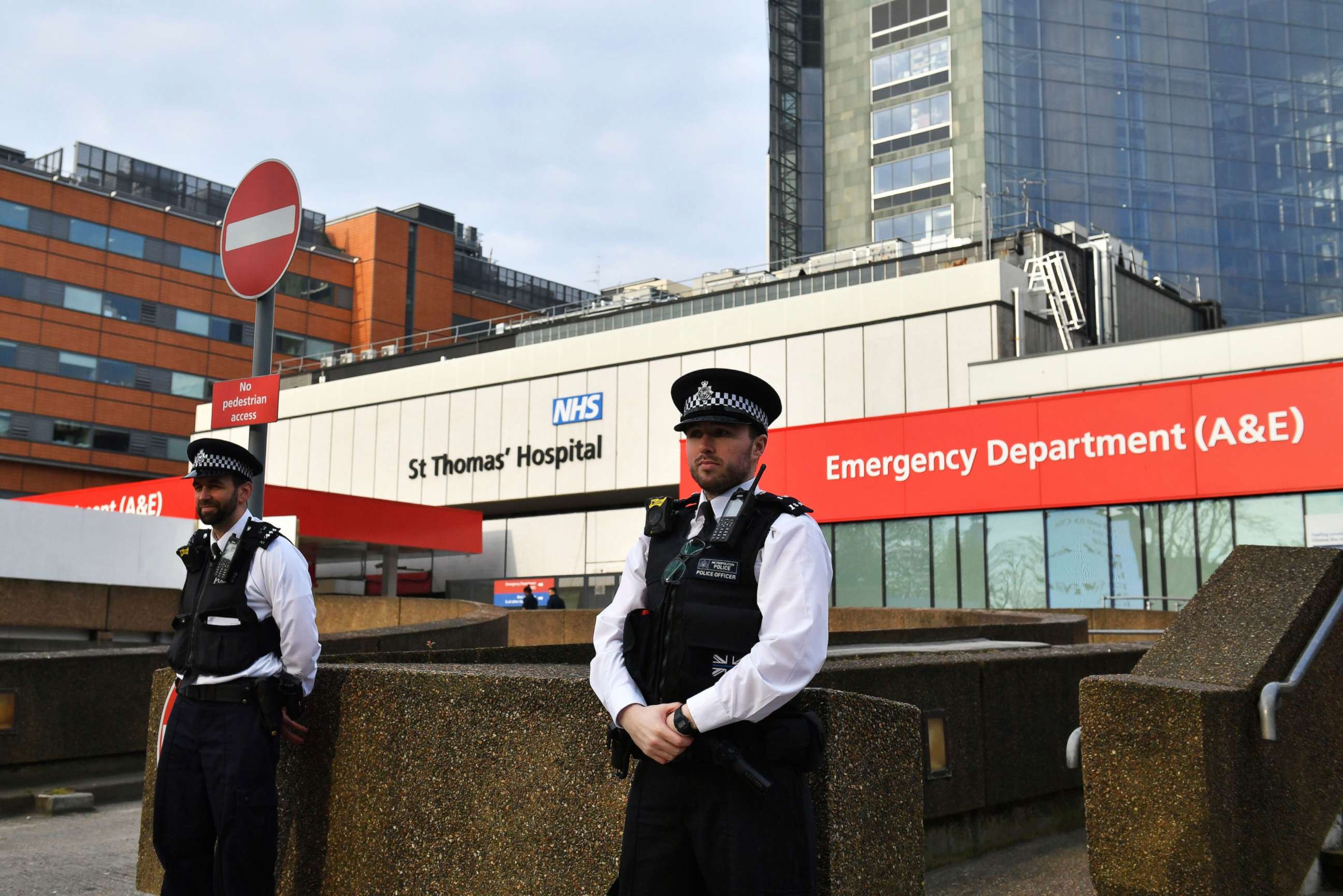
Besides the prime minister, Prince Charles, heir to the British throne, has also tested positive for the virus.
Wednesday marked the biggest rise so far in the United Kingdom's coronavirus death toll, with 938 fatalities in 24 hours.
The total number of deaths in the U.K. has now reached 7,097.
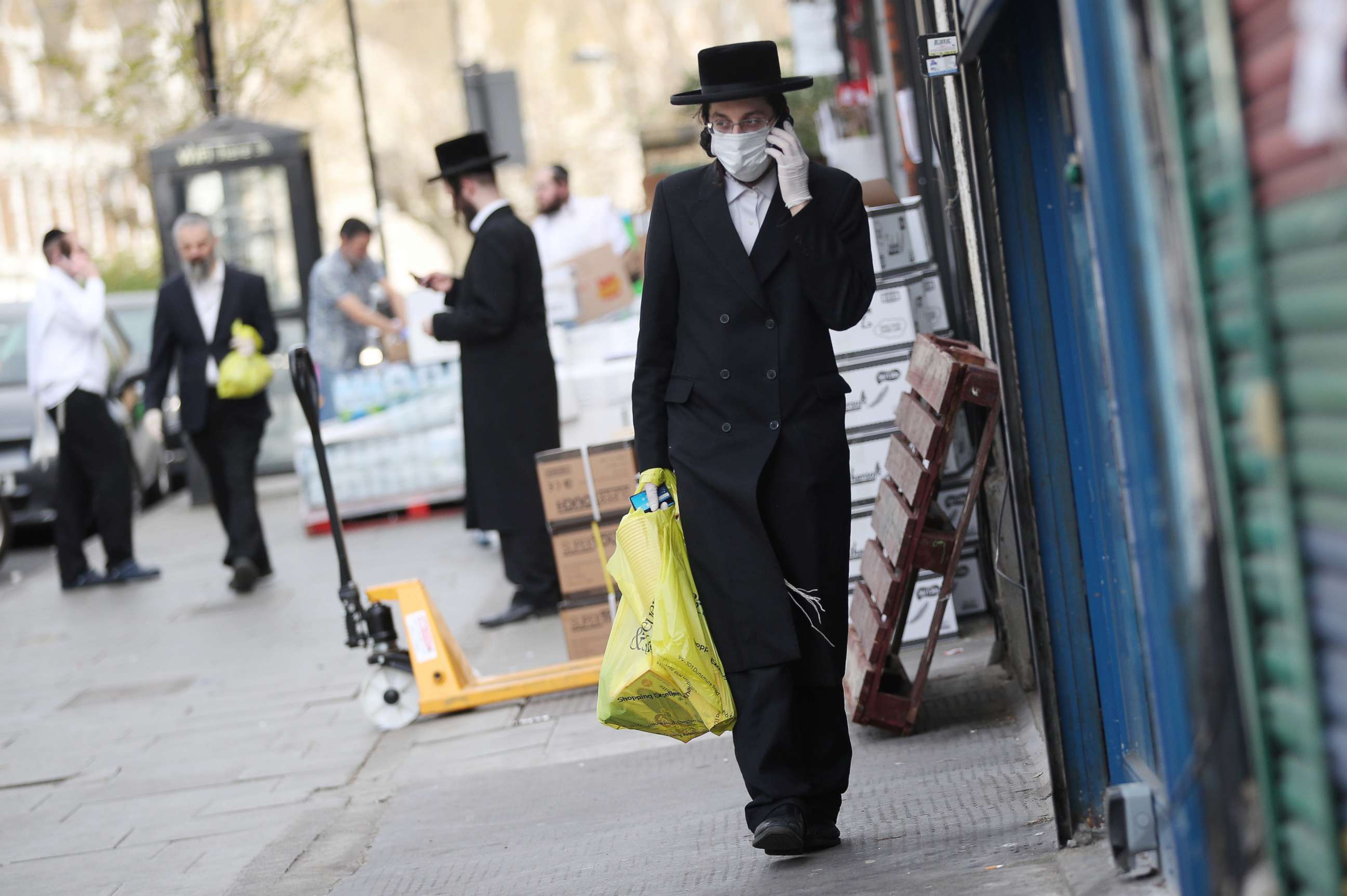
11:55 a.m.: Mayor tells police to crack down on stay-at-home violators, his wife gets busted
In Alton, Illinois, amid increased reports of large gatherings, Mayor Brant Walker said on Friday he ordered the local police to "more strictly enforce" the statewide stay-at-home order by using citations.
But over the weekend, among those at a social gathering broken up by police was Walker's wife.
"My wife is an adult capable of making her own decisions, and in this instance she exhibited a stunning lack of judgement. She now faces the same consequences for her ill-advised decision as the other individuals who chose to violate the "Stay At Home" order during this incident," the mayor said in a statement on Monday.
"I instructed the Police Chief to treat her as he would any citizen violating the 'Stay At Home' order and to ensure that she received no special treatment," the mayor said. "I am embarrassed by this incident and apologize to the citizens of Alton."
11:20 a.m.: Broadway shows now canceled through June 7
Broadway will remain dark in New York City with show closures now extending through June 7.
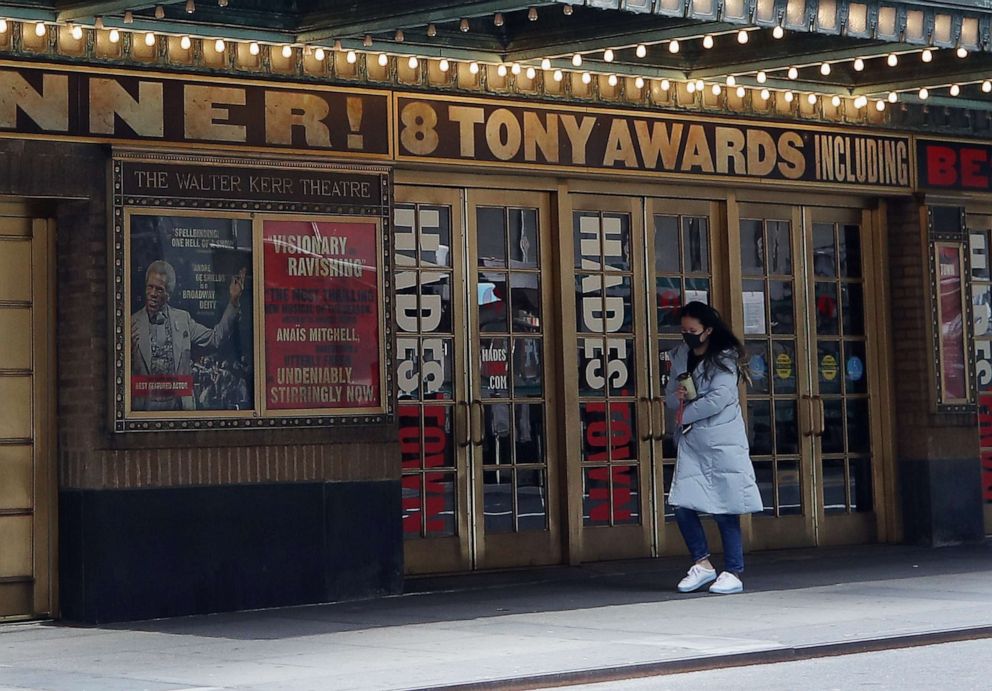
Broadway performances were initially shut down from March 12 to April 12.
11:05 a.m.: Nursing home evacuated due to coronavirus outbreak, staff not coming to work
Eighty-four patients from a Riverside County, California, nursing home will be evacuated to other health care locations Wednesday after employees didn't come to work for two days amid a coronavirus outbreak there.
"For example, one certified nursing assistant of the 13 scheduled showed up to work at the Magnolia Rehabilitation and Nursing Center, which prompted Riverside University Health System and Kaiser Permanente to send a total of 33 licensed vocational nurses and registered nurses to care for the residents at the facility," according to the Riverside University Health System. "Staffing demands, however, require the patients be moved today."
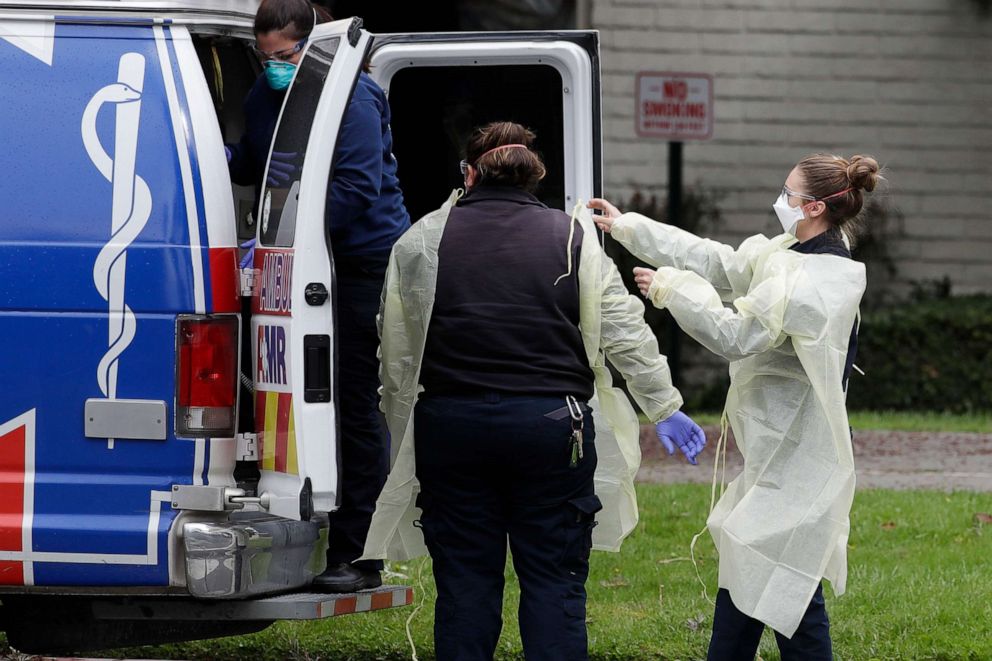
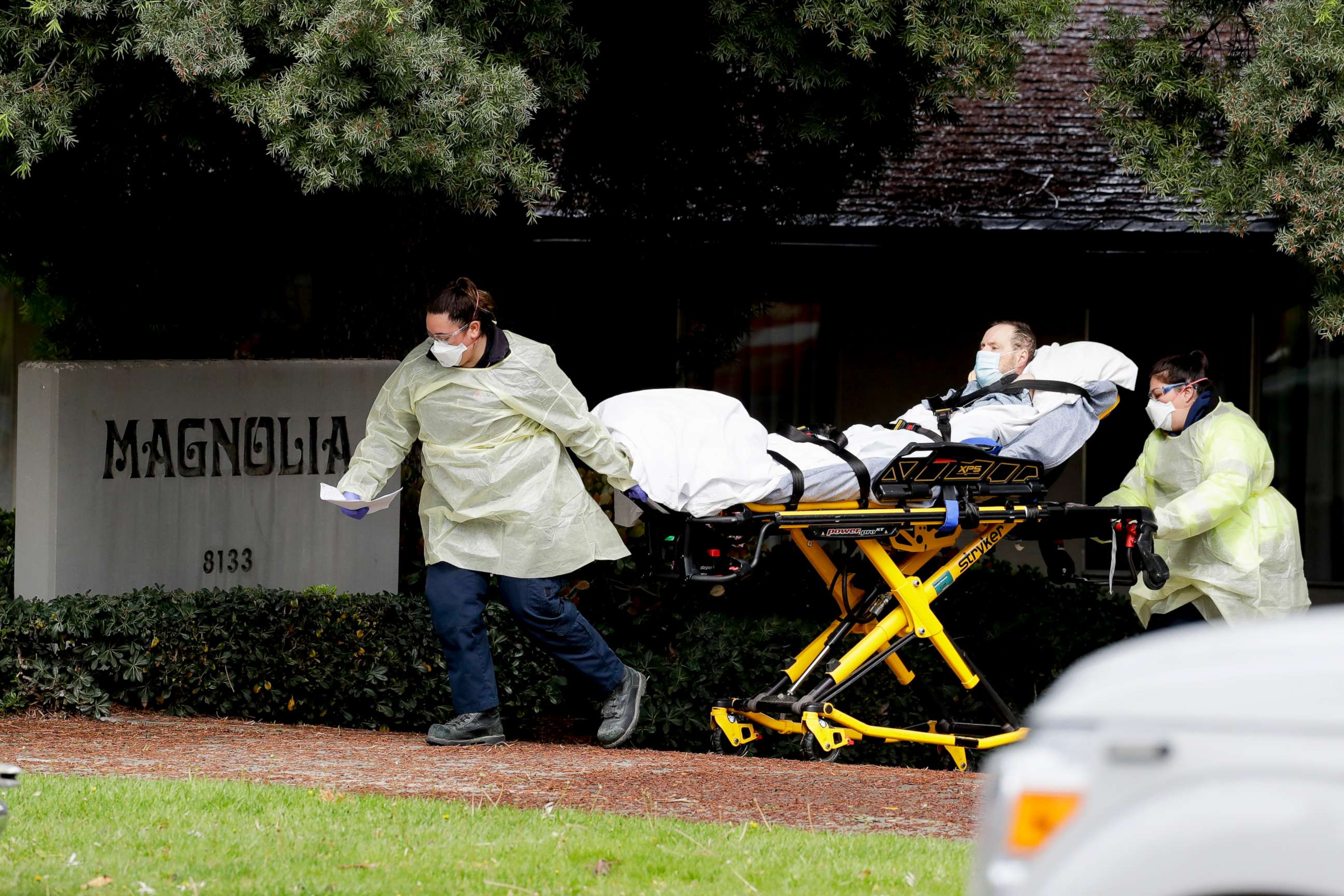
There are 34 known cases of the coronavirus among residents and five cases among employee at the Magnolia Rehabilitation and Nursing Center, according to the Riverside University Health System.
The number of COVID-19 cases in Riverside County has reached 1,016. At least 28 people in the county have died.
10:30 a.m.: NYC's largest percentage of deaths is among Hispanics
In hard-hit New York City, preliminary data shows the largest percentage of coronavirus deaths is among Hispanics, which New York City Mayor Bill de Blasio called "blatant inequality."
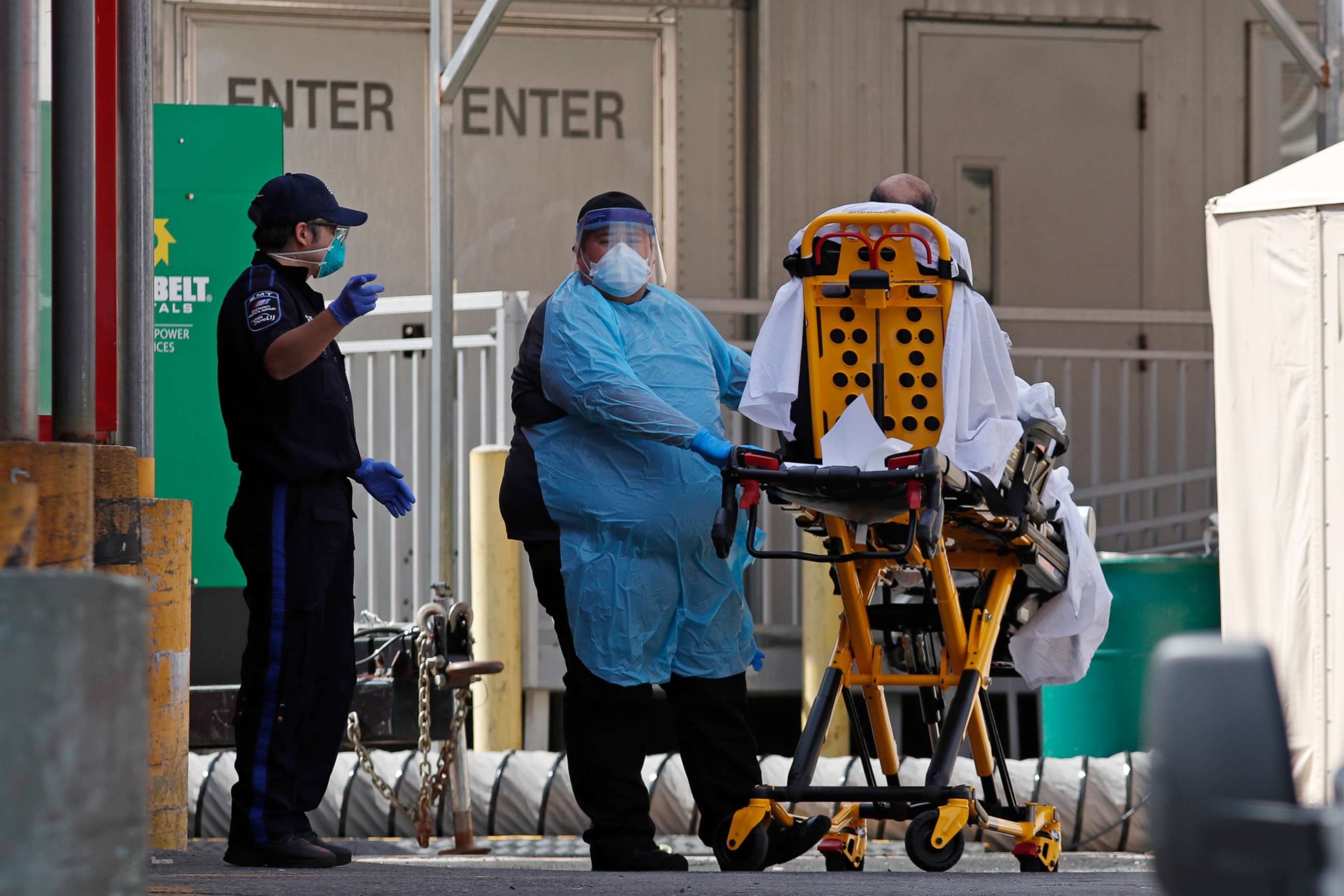
Hispanics make up 34% of coronavirus deaths though they make up 29% of the city's population.
Further, African Americans make up 28% of coronavirus deaths, though they make up 22% of the city's population, the preliminary data shows.
Meanwhile, whites make up 27% of deaths and 32% of the population, and Asians make up 7% of deaths and 14% of the population.
The breakdown, with 63% reporting, was provided by New York City's Department of Health and Mental Hygiene.
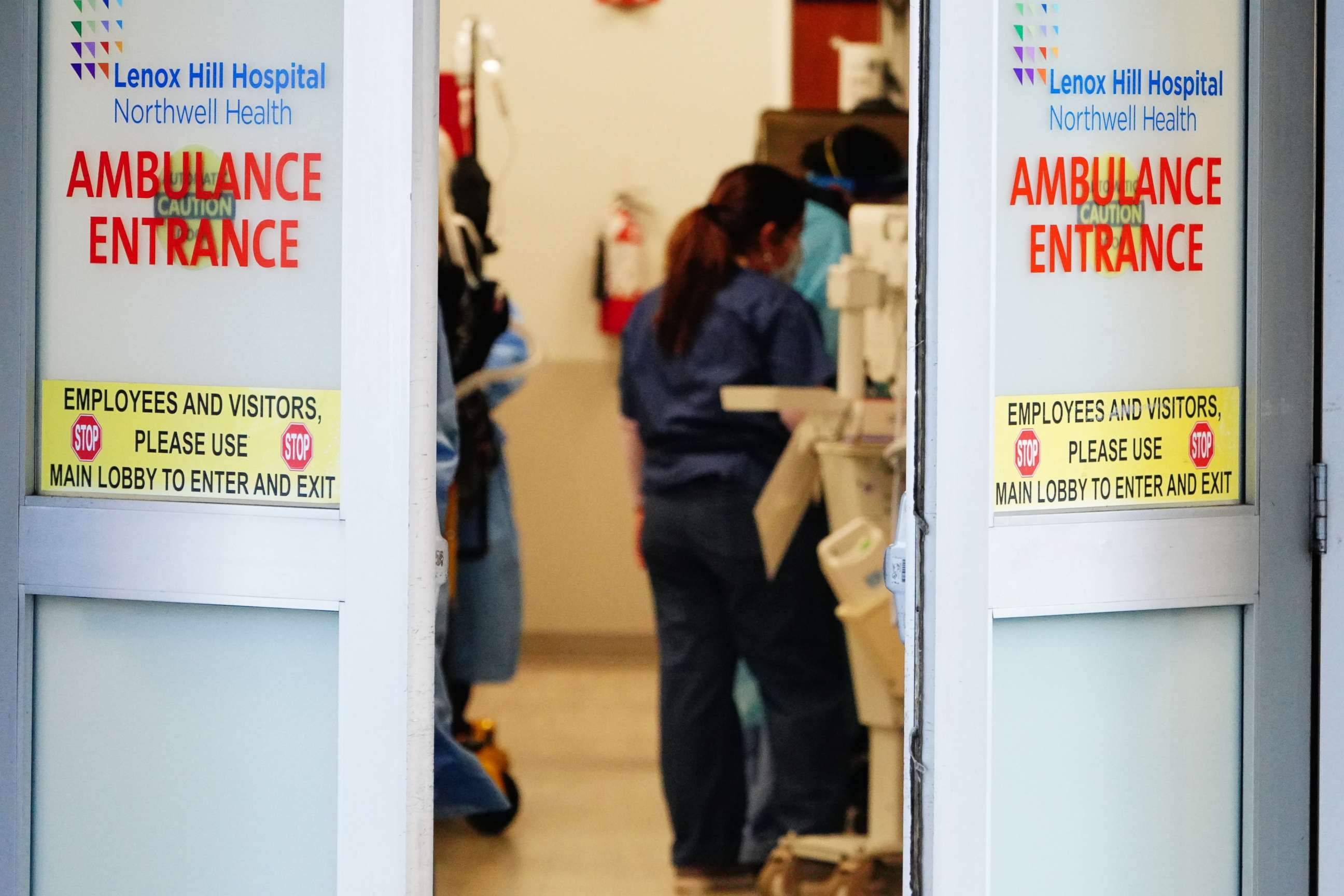
"When I saw this, it made me very angry," de Blasio said. "The disparities that have plagued this city, this nation, that are all about fundamental inequality, are once again causing such pain, and causing people, innocent people, to lose their lives ... it's troubling. It's wrong."
"We're gonna fight back with everything we got," he said.
The mayor said to confront disparities, the city is enacting initiatives including: grassroots outreach such as calling households and robocalls; PSAs focusing on zip codes with the highest positive cases; and PSAs published in 14 different languages.
De Blasio also said Wednesday there is an urgent need for surgical gowns. He said New York City has asked the federal government for over 9 million.
In better news, the mayor said the city received on Tuesday over 3 million surgical masks, more than 1 million N95 masks and 2 million surgical gloves.
And de Blasio said, "for the first time in awhile ... we will get through this week" in terms of ventilators.
The city has 5,500 ventilators available in hospitals, including 500 received from the state on Tuesday, he said. There are also 135 ventilators in an emergency reserve.
What to know about coronavirus:
- How it started and how to protect yourself: Coronavirus explained
- What to do if you have symptoms: Coronavirus symptoms
- Tracking the spread in the U.S. and worldwide: Coronavirus map
8:20 a.m.: Spain announces plan to gradually ease lockdown measures
Spain reported another uptick in infections and fatalities from the novel coronavirus on Wednesday.
The Spanish Ministry of Health recorded 757 new deaths from COVID-19 in the past 24 hours, bringing the nationwide total to 14,555 -- a nearly 5.5% jump. There were also 6,180 new diagnosed cases, bringing the national tally to 146,690 -- a 4.4% increase.
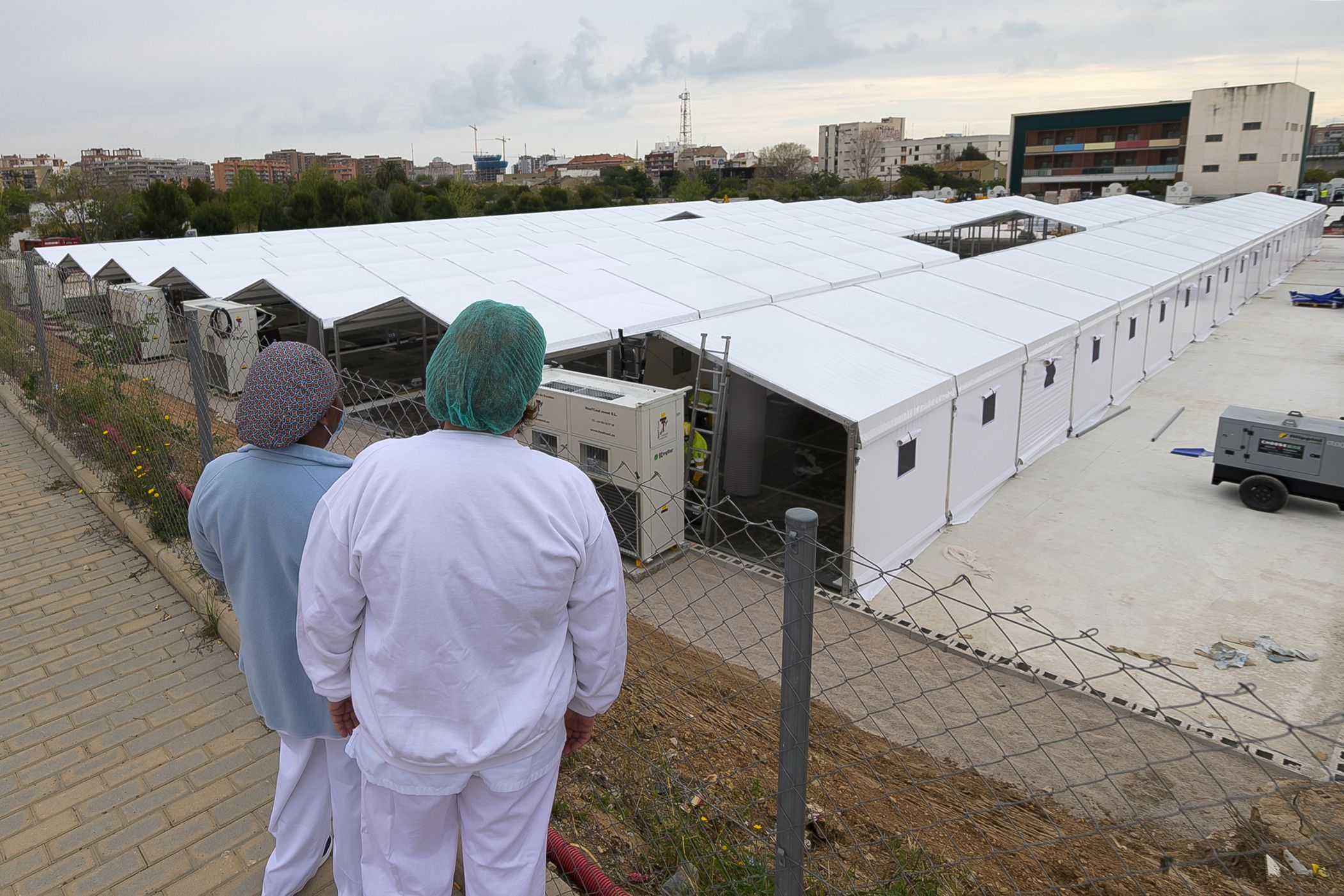
But that hasn't stopped the Spanish government from announcing plans to gradually lift the lockdown measures across the country. Spain's finance minister and government spokesperson, Maria Jesus Montero, said at a press conference Tuesday night that "citizens will be able to get back to their normal life" starting April 26.
On March 14, Spain formally declared a state of emergency and issued stay-at-home orders to combat the country's virus outbreak.
A group of experts are drawing up clear guidance for the ease of restrictions, which will be made readily accessible to the public and communicated by government officials.
7:18 a.m.: US may investigate WHO's handling of pandemic, official says
Dr. Deborah Birx, the White House's coronavirus response coordinator, indicated Wednesday that the U.S. would investigate the World Health Organization's handling of the pandemic before deciding whether to withhold its funding to the United Nations' health agency.
"We've done that before with previous outbreaks and previous issues that have occurred at WHO," Birx told ABC News chief anchor George Stephanopoulos in an interview on "Good Morning America."
During a press briefing Tuesday, President Donald Trump blamed the WHO for getting "every aspect" of the novel coronavirus pandemic wrong and threatened to freeze American funding.
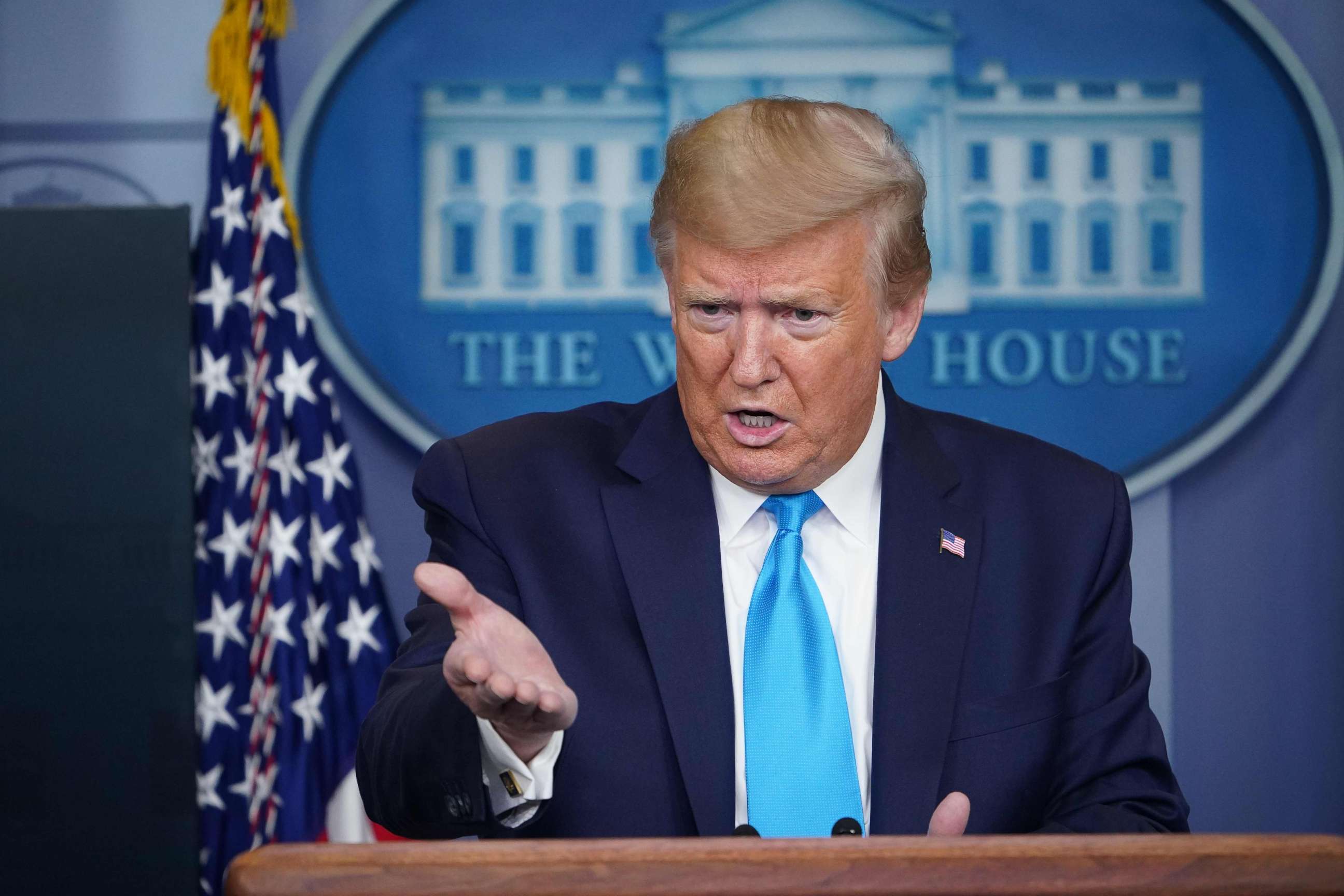
The Geneva-based international body started sounding the alarm over the outbreak in China in mid-January and then designated it a global health emergency on Jan. 30. On March 11, the WHO declared the outbreak a pandemic after the virus had spread to every continent except Antarctica.
"In the history of the United States and the World Health Organization, we have had times when we've done really in-depth analysis of what has happened. When the president said he was holding funds, he didn't say he was restricting and keeping funds permanently away, but instead said, let's investigate what happened," Birx said. "I think that the president wants to complete an investigation of what happened during this current outbreak."
"Believe me, they already have their continuation funds from last year," she added. "So this is a year-by-year commitment to the WHO, this is our required commitment. There's also voluntary commitments that we've made to the WHO through history, including over the last couple of years for HIV, malaria, TB, so a whole series of diseases."
The U.S. is, by far, the single largest financial contributor to the WHO.
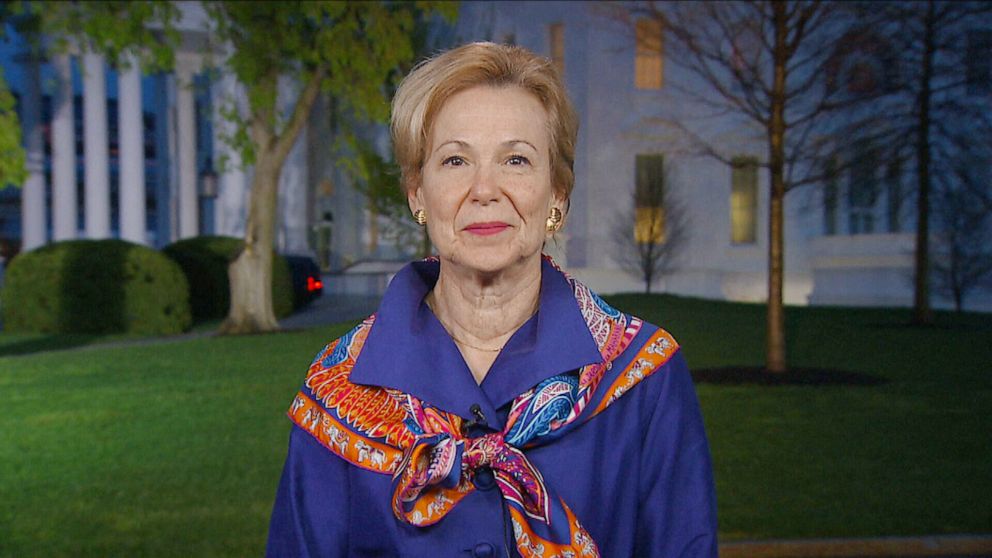
Birx said the White House coronavirus task force is currently concerned about the metro areas of Baltimore, Philadelphia and Washington, D.C. potentially becoming the next hot spots of the country's outbreak.
"All of our previous areas seem to be steady at least," she added. "And then certainly we're looking very carefully at California and Washington [state] to really understand how they've been able as a community of Americans to mitigate so well."
Birx said they hope to roll out an antibody test "within the next 10 or 14 days" that can detect how many Americans have already had the virus but were asymptomatic.
"This makes a very big difference in really understanding who can go back to work and how they can go back to work," she said. "So all of those pieces need to come together over the next couple of weeks."
3 a.m.: China lifts lockdown in city where pandemic began
Chinese authorities have lifted a monthslong lockdown on Wuhan, the city where the coronavirus pandemic began.
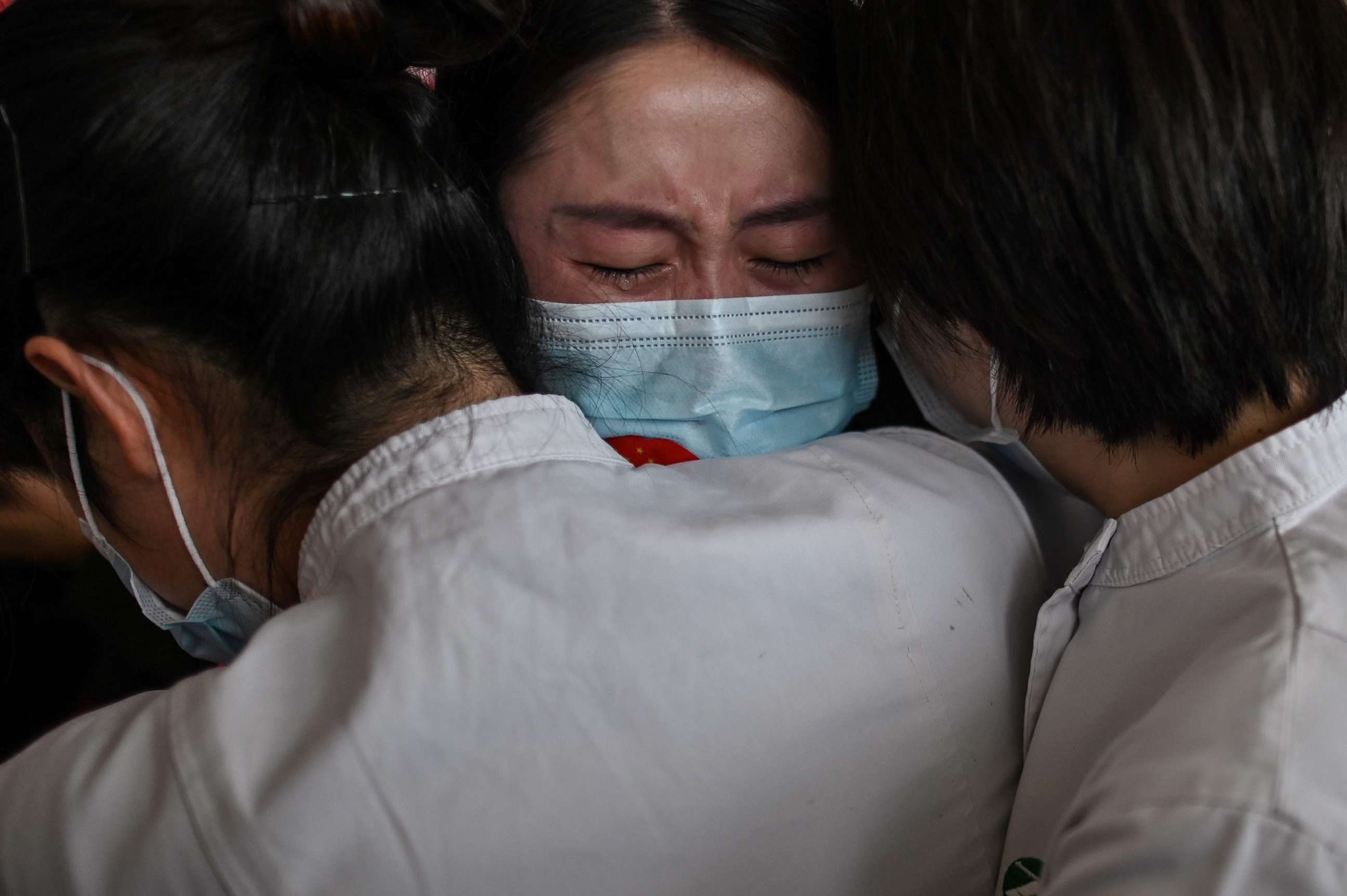
The very first cases of the novel coronavirus were detected in Wuhan back in December. The city of 11 million people went on lockdown on Jan. 23 in an effort to control the spread of the virus, the first in the world to do so.
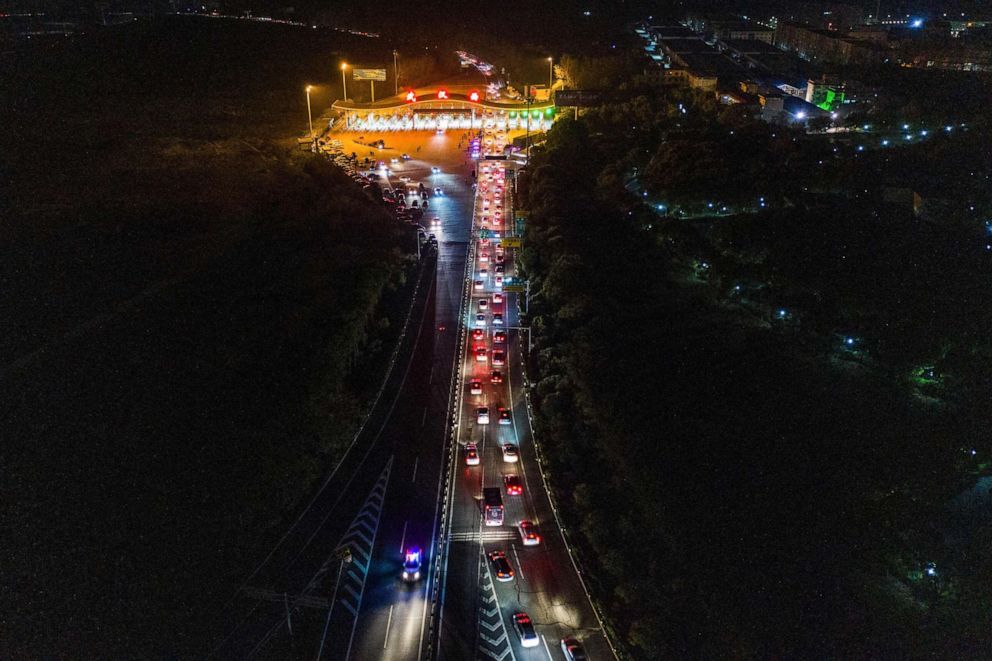
The bulk of the Chinese mainland's nearly 82,000 confirmed COVID-19 cases and over 3,300 deaths have been reported in Wuhan, the capital of central Hubei province. However, the strict travel restrictions in the city have been gradually eased in recent weeks as the number of new infections continuously declined.
The final restrictions on outbound travel were lifted Wednesday. Thousands of people streamed out of the city via car, train and plane.
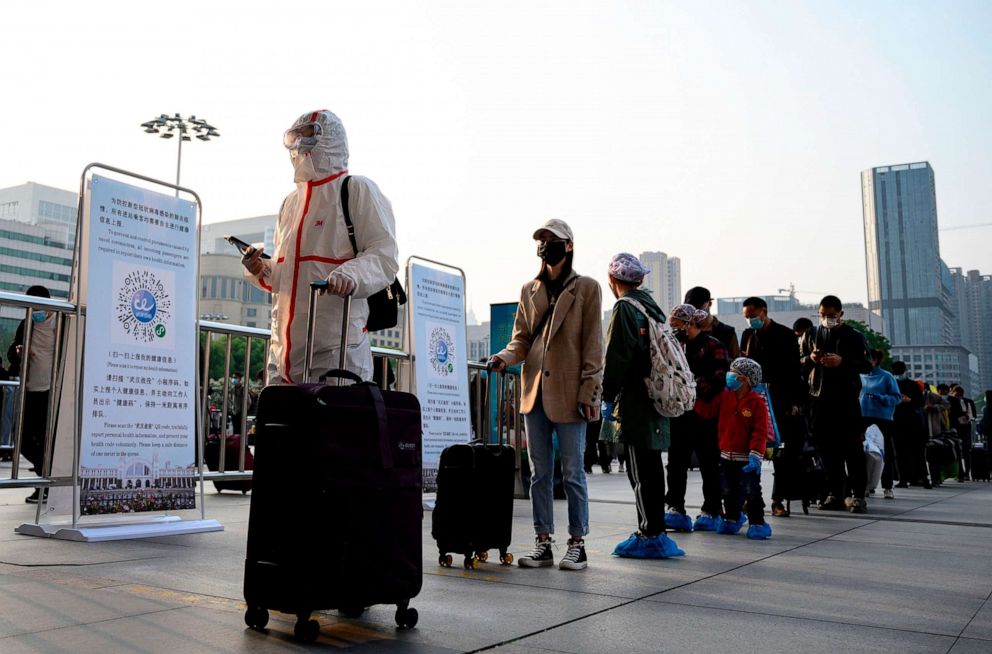
China's National Health Commission on Wednesday reported no new cases in Wuhan nor the greater Hubei province, though questions have been raised over the accuracy of China's figures.
ABC News' Mark Crudele, Aicha El Hammar, Aaron Katersky, Rachel Katz, Whitney Lloyd, Kelly McCarthy, Darren Reynolds, Sarah Shales, Joseph Simonetti, Christine Theodorou, J Gabriel Ware and Scott Withers contributed to this report.
